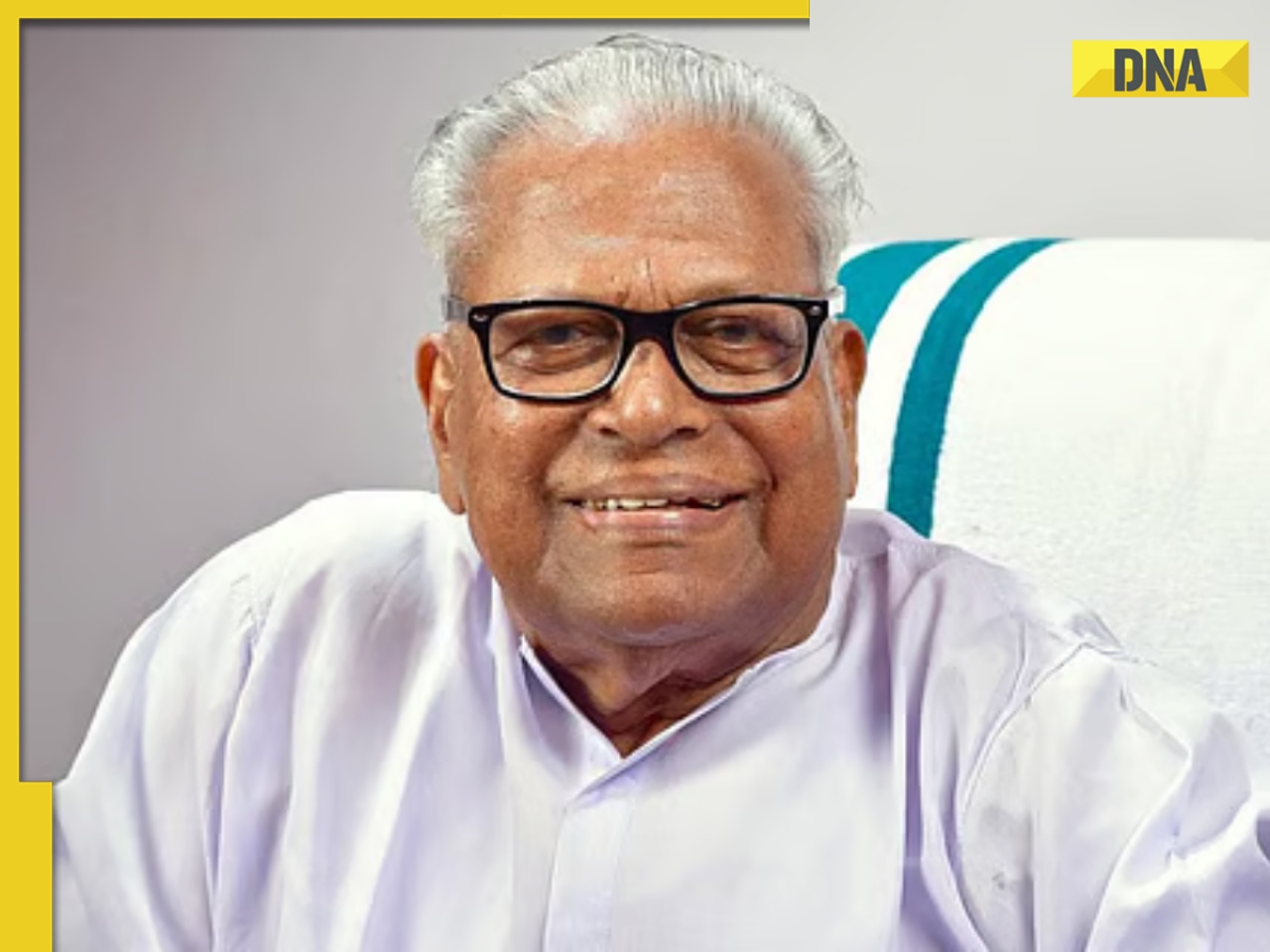Indian-origin techie Aravind Srinivas's AI startup Perplexity is being eyed by Apple and Meta for acquisition, signalling a major shift in the AI race.
Indian-origin techie Aravind Srinivas is the brain behind Perplexity AI—now Apple and Meta want to buy it
Aravind Srinivas, a brilliant Indian-origin engineer and entrepreneur, is making headlines in the tech world. He is the co-founder and CEO of Perplexity AI, a fast-growing AI-powered search engine that many believe could one day challenge Google’s dominance. Srinivas completed his engineering studies at IIT Madras and a PhD in Computer Science from the University of California, Berkeley. His passion for artificial intelligence led him to work as a research intern at big names like OpenAI, DeepMind, and Google, before returning to OpenAI as a research scientist in 2021. Then, in August 2022, he co-founded Perplexity AI with Andy Konwinski, Denis Yarats, and Johnny Ho.
Perplexity’s main idea is simple: give people direct, conversational answers instead of confusing links. The platform lets users ask questions naturally, just like they would speak to another person, and get clear, footnoted answers from across the web. It also allows users to choose which large language model (LLM) they want to use and even supports image uploads. This mix of transparency, choice, and simplicity is what has made Perplexity one of the most exciting new AI tools in the world.
Why Both Apple and Meta Are Interested in Buying Perplexity AI
In a surprising turn of events, both Apple and Meta are reportedly interested in acquiring Perplexity AI. While tech giants like these often pursue new startups quietly, this time it’s become public news, making the race even more interesting. According to reports by Bloomberg, Meta approached Perplexity first, even before investing USD 14.3 billion in another AI company called Scale AI. Around the same time, Apple also showed interest, which is unusual because Apple generally prefers to build things in-house rather than buy them.
Apple's move could be a sign that it is trying to catch up in the AI race. Its recent attempts to impress the public with AI, like the much-hyped Apple Intelligence, fell short of expectations. The company is also under pressure to reduce its reliance on Google, especially as regulators are questioning Apple’s long-standing deal to keep Google as the default search engine on iPhones.
Apple’s Cautious AI Strategy Could Be Changing
Historically, Apple has avoided making large acquisitions. Its last big buy was Beats in 2014 for USD 3 billion. Instead, Apple usually prefers small deals that bring talented teams on board. But things might be changing. The company recently discussed possible integration of Perplexity AI into Safari, hinting that Apple may be looking for a search engine of its own. It also wants to create a more private and user-friendly AI experience that aligns with its hardware-first model.
Apple isn’t trying to become another Google or OpenAI just yet. Instead, it wants to improve the AI experience across its iPhones, Macs, and other devices. A company like Perplexity, which already blends clean design with strong AI, fits right into Apple’s ecosystem. The startup’s search tool works smoothly on iOS and even feels a bit Apple-like in its simplicity.
Meta’s Need for AI Talent Is Growing Urgent
Meta, on the other hand, has a very different approach. The company is known for big acquisitions like Instagram and WhatsApp and is currently on a spending spree in the AI space. CEO Mark Zuckerberg is under pressure to keep up with Google and OpenAI. Meta recently invested USD 14.3 billion in Scale AI and tried to acquire another AI startup, Safe Superintelligence, launched by OpenAI co-founder Ilya Sutskever.
Meta is also reportedly offering huge bonuses, as much as USD 100 million, to poach talent from OpenAI. The company wants to build stronger AI models that will power everything from social media to virtual reality and smart glasses. For Meta, acquiring Perplexity could improve its AI assistant, which already serves over a billion users monthly across Facebook, Instagram, and WhatsApp.
Whether Perplexity agrees to sell or not remains unclear. But one thing is certain: Aravind Srinivas and his team have created something special, so much so that two of the world’s biggest tech giants are now fighting over it.
 MS Dhoni calls out on lack of physical activity among Indians, raises concern for fitness levels of youngsters: 'Even my daughter...'
MS Dhoni calls out on lack of physical activity among Indians, raises concern for fitness levels of youngsters: 'Even my daughter...' Divyanka Tripathi hits back after Elvish Yadav fans abused her for not recognising him on Laughter Chefs 2: 'My system bounces back your...'
Divyanka Tripathi hits back after Elvish Yadav fans abused her for not recognising him on Laughter Chefs 2: 'My system bounces back your...' Kalki Koechlin talks about 'difficult' divorce from Anurag Kashyap: 'It was hurtful to see him with...'
Kalki Koechlin talks about 'difficult' divorce from Anurag Kashyap: 'It was hurtful to see him with...' Stranded British F-35B fighter jet to fly out today: Know how much Kerala airport may have earned from parking
Stranded British F-35B fighter jet to fly out today: Know how much Kerala airport may have earned from parking Amid Epstein-Donald Trump row, White House pulls The Wall Street Journal from Scotland press pool
Amid Epstein-Donald Trump row, White House pulls The Wall Street Journal from Scotland press pool NASA shares 7 majestic images of 'Star War' planets in solar system
NASA shares 7 majestic images of 'Star War' planets in solar system Why do you lose your temper after drinking alcohol or eating meat? Know 7 ways to manage it
Why do you lose your temper after drinking alcohol or eating meat? Know 7 ways to manage it Want healthy liver? Ditch these 7 foods immediately
Want healthy liver? Ditch these 7 foods immediately What is a buffalo hump? Here are 7 ways to treat it naturally and effectively
What is a buffalo hump? Here are 7 ways to treat it naturally and effectively Anushka Sharma's Indian-Chinese, Kangana Ranaut's 'Gol Gappa' and more: Here are Bollywood celebs' favourite street foods
Anushka Sharma's Indian-Chinese, Kangana Ranaut's 'Gol Gappa' and more: Here are Bollywood celebs' favourite street foods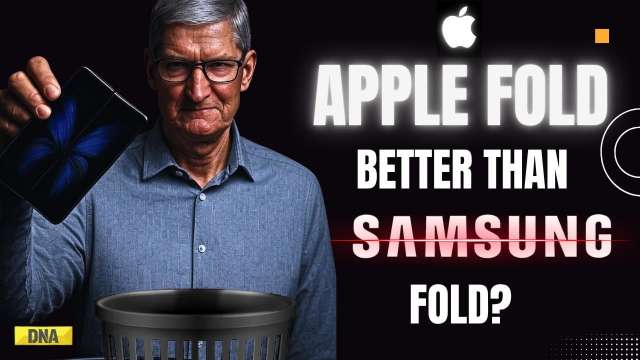 Iphone Fold: Apple’s iPhone Fold Could Solve Samsung’s Biggest Foldable Problem | Samsung Z Fold 7
Iphone Fold: Apple’s iPhone Fold Could Solve Samsung’s Biggest Foldable Problem | Samsung Z Fold 7 Trump News: Congress Seeks Answers On Trump's Alleged Mediation In Operation Sindoor
Trump News: Congress Seeks Answers On Trump's Alleged Mediation In Operation Sindoor Odisha News: Minor Burnt To Death In Puri Family Reveals Shocking Attack Details | Puri News
Odisha News: Minor Burnt To Death In Puri Family Reveals Shocking Attack Details | Puri News Odisha News: Minor Girl Burnt By 3 Men Days After Balasore Self-Immolation | Puri News
Odisha News: Minor Girl Burnt By 3 Men Days After Balasore Self-Immolation | Puri News Saiyaara: Who Is Ahaan Panday, Ananya’s Cousin, To Debut In YRF’s Mohit Suri Love Story
Saiyaara: Who Is Ahaan Panday, Ananya’s Cousin, To Debut In YRF’s Mohit Suri Love Story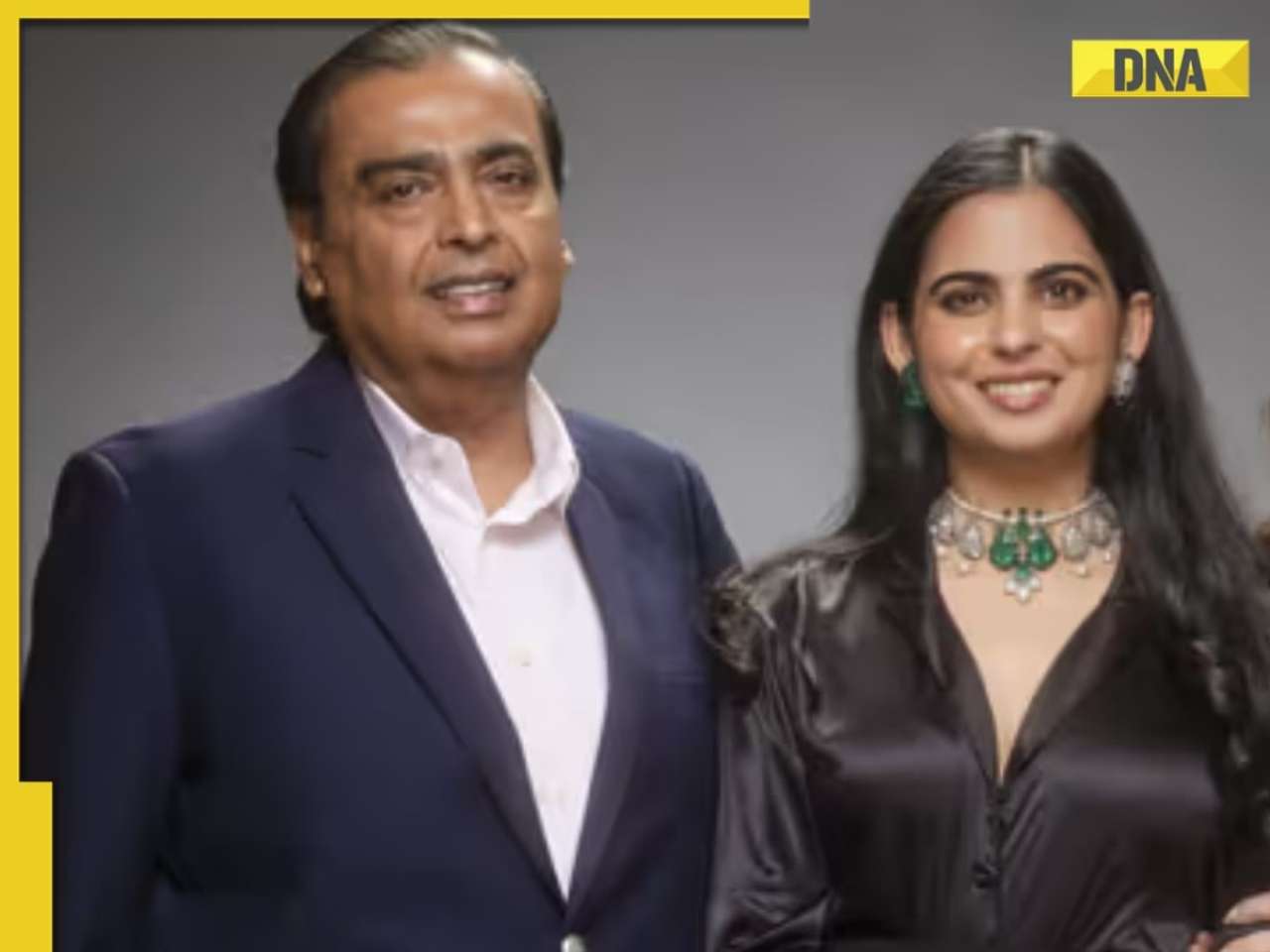 Another masterstroke by Mukesh Ambani, Isha Ambani, Reliance enters fast fashion delivery market with...
Another masterstroke by Mukesh Ambani, Isha Ambani, Reliance enters fast fashion delivery market with...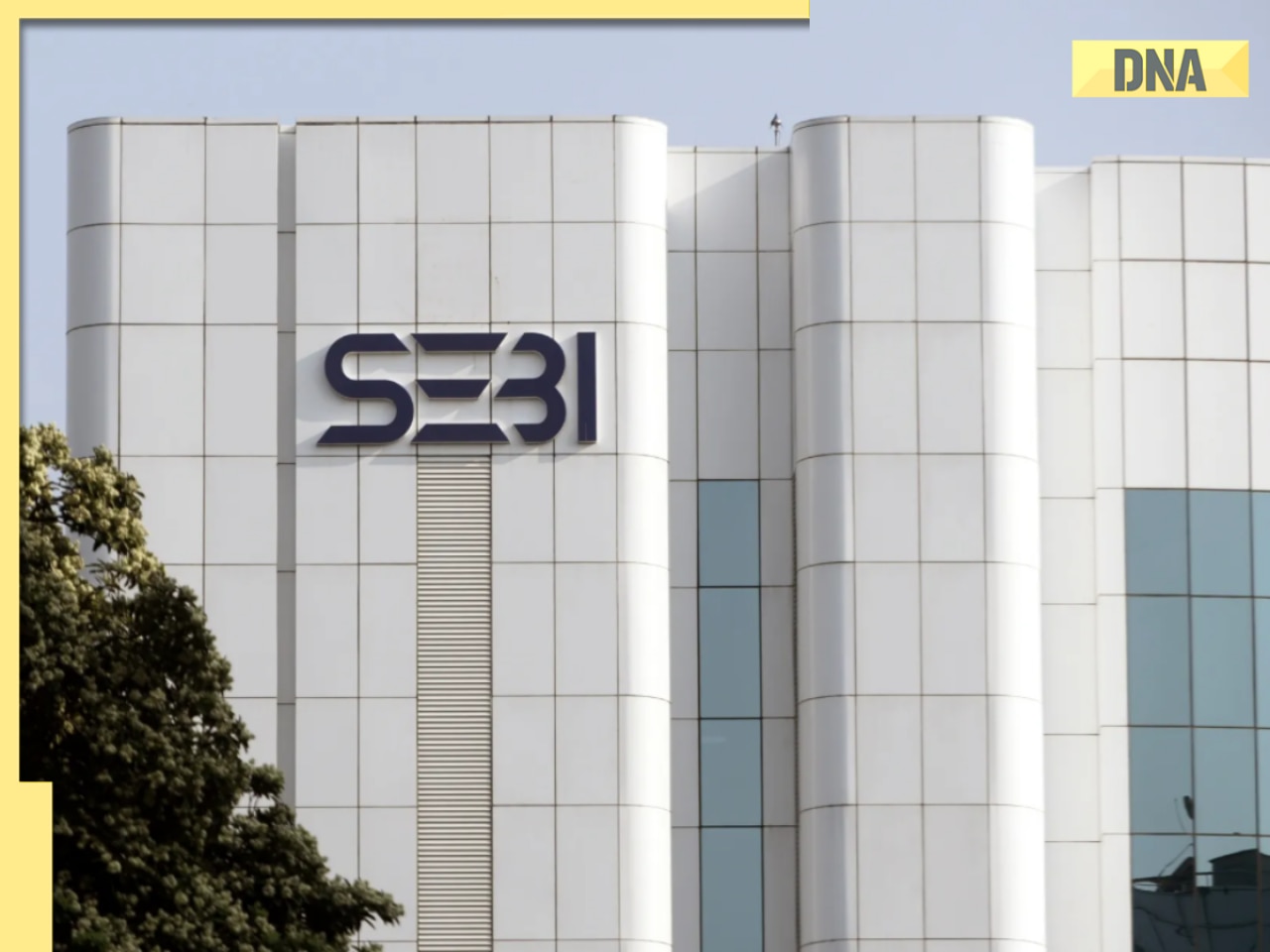 Sebi lifts ban on Jane Street, allows US firm to resume trading but...
Sebi lifts ban on Jane Street, allows US firm to resume trading but...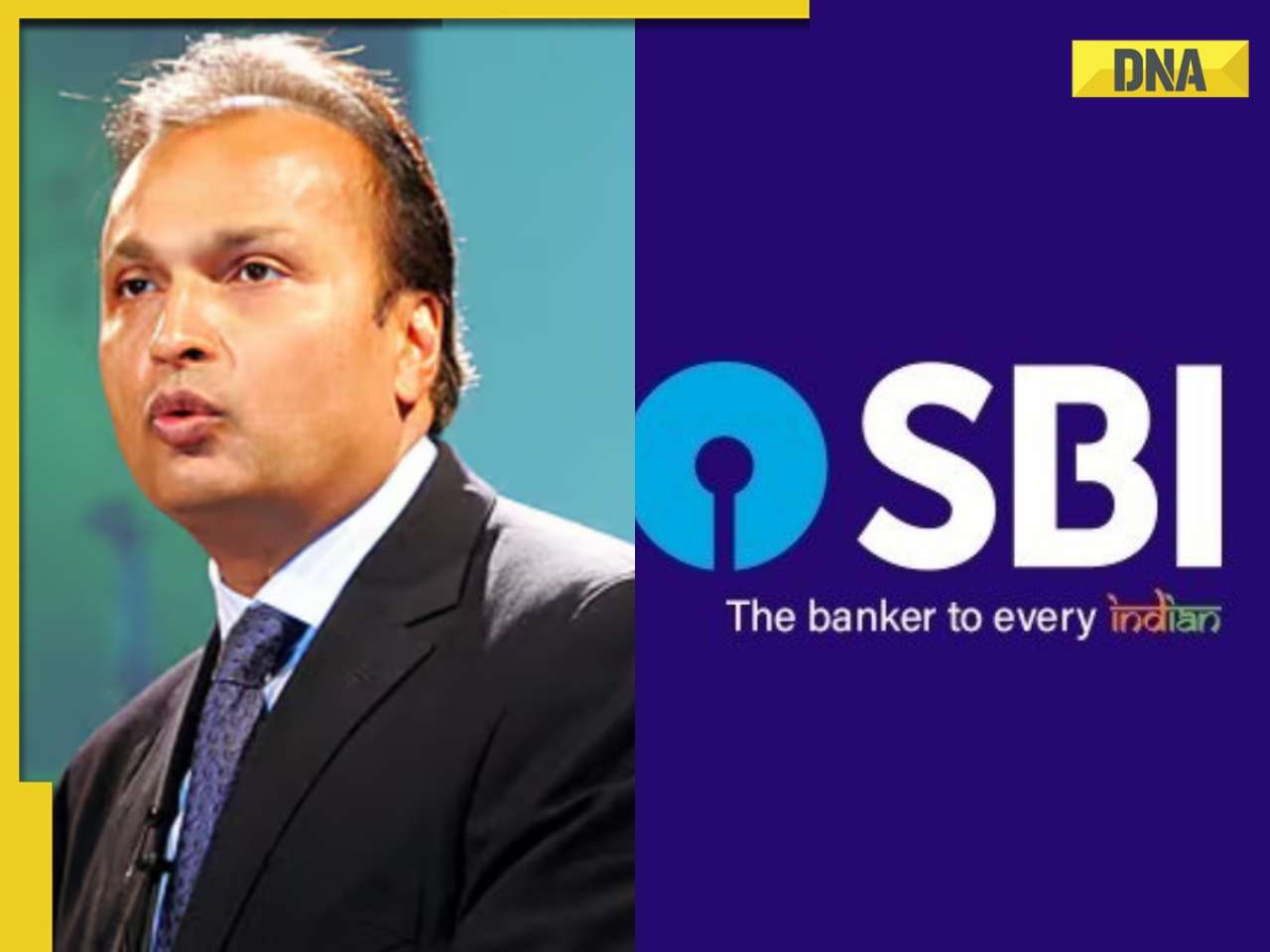 HUGE blow to Anil Ambani as SBI classifies him, RCom, as 'fraud'; to file complaint with...
HUGE blow to Anil Ambani as SBI classifies him, RCom, as 'fraud'; to file complaint with...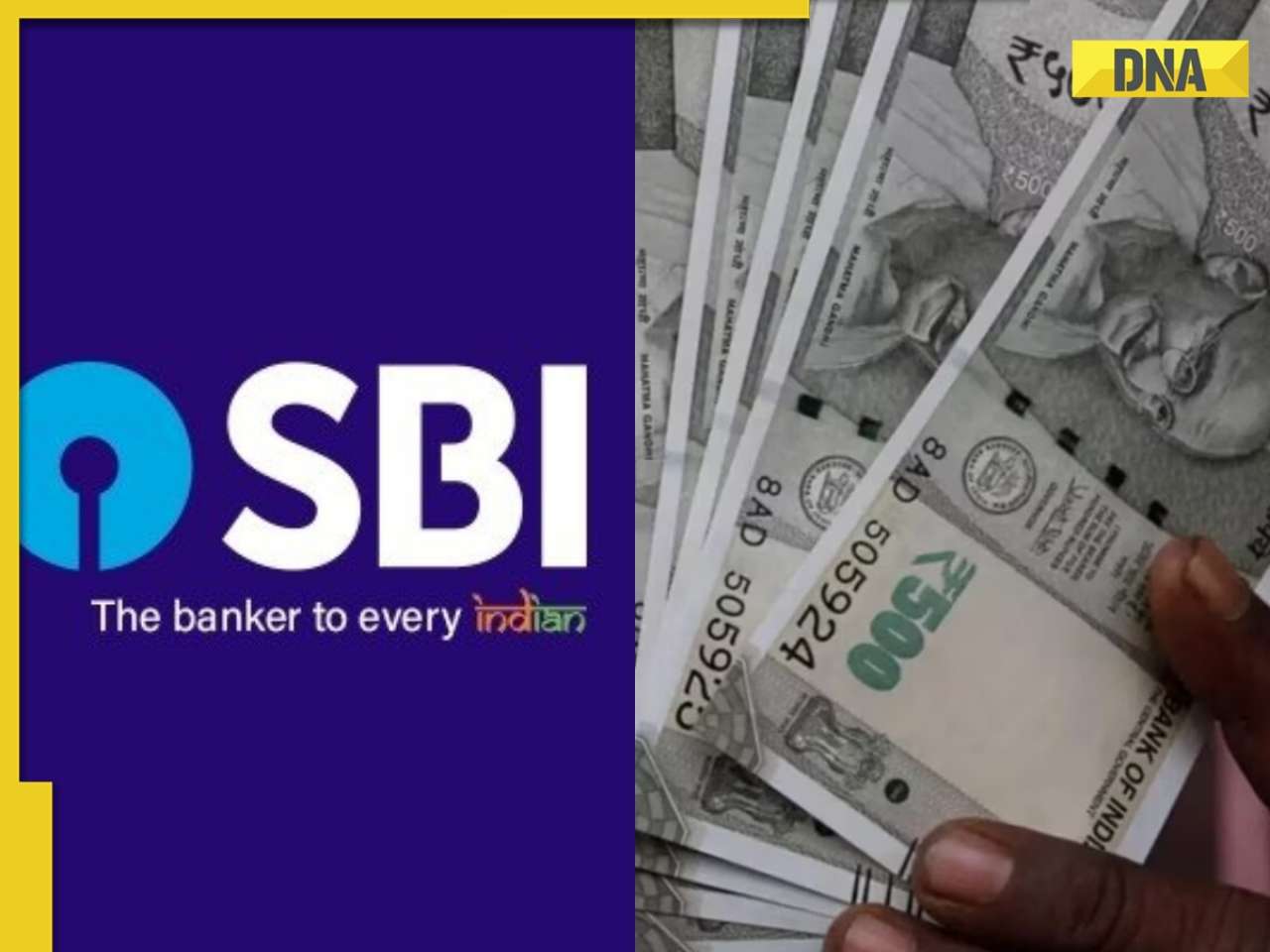 India's largest govt bank raises Rs 25000 crore to fund...; over 6 crore shares bought by...; not Mukesh Ambani, Adani
India's largest govt bank raises Rs 25000 crore to fund...; over 6 crore shares bought by...; not Mukesh Ambani, Adani Deepinder Goyal makes BIG move as Zomato to launch...; aims to take on...
Deepinder Goyal makes BIG move as Zomato to launch...; aims to take on...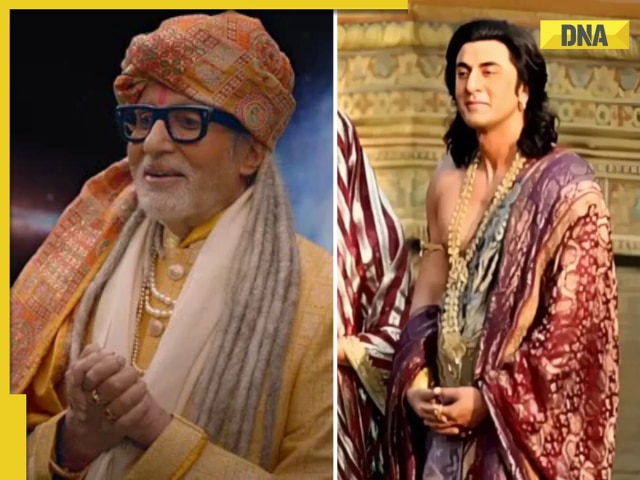 From Amitabh Bachchan in Fakt Purusho Maate to Ranbir Kapoor in Ramayana: 7 actors who’ve played gods on-screen
From Amitabh Bachchan in Fakt Purusho Maate to Ranbir Kapoor in Ramayana: 7 actors who’ve played gods on-screen Before Ibrahim Ali Khan's Sarzameen, 7 must-watch iconic patriotic films
Before Ibrahim Ali Khan's Sarzameen, 7 must-watch iconic patriotic films iPhone 17 Pro vs iPhone 16 Pro: 5 major upgrades you shouldn't ignore before buying
iPhone 17 Pro vs iPhone 16 Pro: 5 major upgrades you shouldn't ignore before buying Tesla opens first showroom in Mumbai; but is new Model Y worth it?
Tesla opens first showroom in Mumbai; but is new Model Y worth it? New mom Kiara Advani’s go-to meals: From her favourite sindhi dal chawal to nutritious oat berry bowls
New mom Kiara Advani’s go-to meals: From her favourite sindhi dal chawal to nutritious oat berry bowls Stranded British F-35B fighter jet to fly out today: Know how much Kerala airport may have earned from parking
Stranded British F-35B fighter jet to fly out today: Know how much Kerala airport may have earned from parking Rahul Gandhi in legal trouble, court accepts plea against Congress leader over...
Rahul Gandhi in legal trouble, court accepts plea against Congress leader over...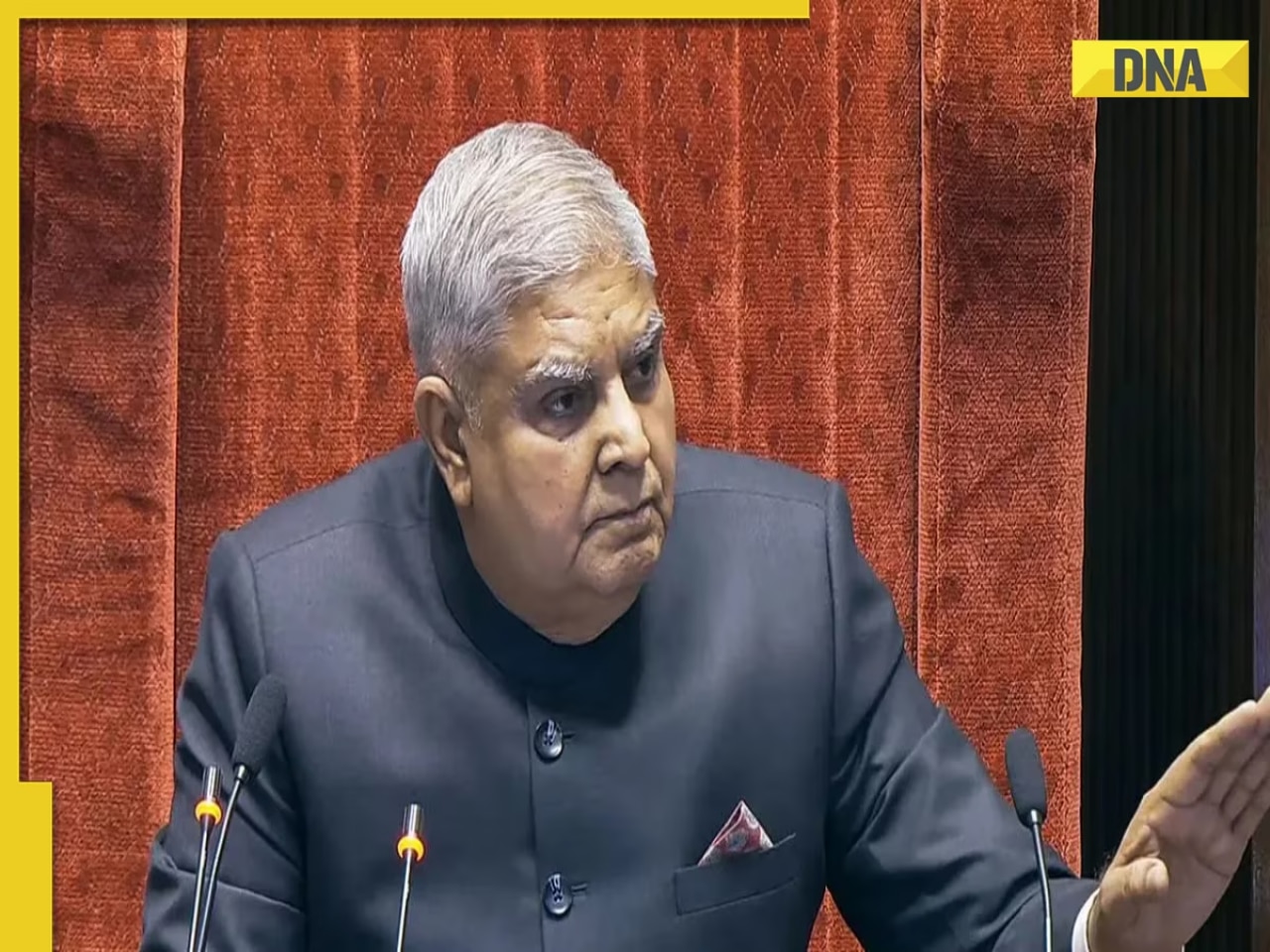 Who will be the next Vice President of India after Jagdeep Dhankhar resigns?
Who will be the next Vice President of India after Jagdeep Dhankhar resigns? Election Commission: This state becomes first in India to have electors less than 12,000
Election Commission: This state becomes first in India to have electors less than 12,000 Another Air India incident as Delhi-Kolkata flight aborted moments before takeoff due to...
Another Air India incident as Delhi-Kolkata flight aborted moments before takeoff due to... Meet woman who cracked UPSC exam in first attempt at the age of 21 with AIR..., but did not become IAS, IPS due to..., currently she is working in...
Meet woman who cracked UPSC exam in first attempt at the age of 21 with AIR..., but did not become IAS, IPS due to..., currently she is working in...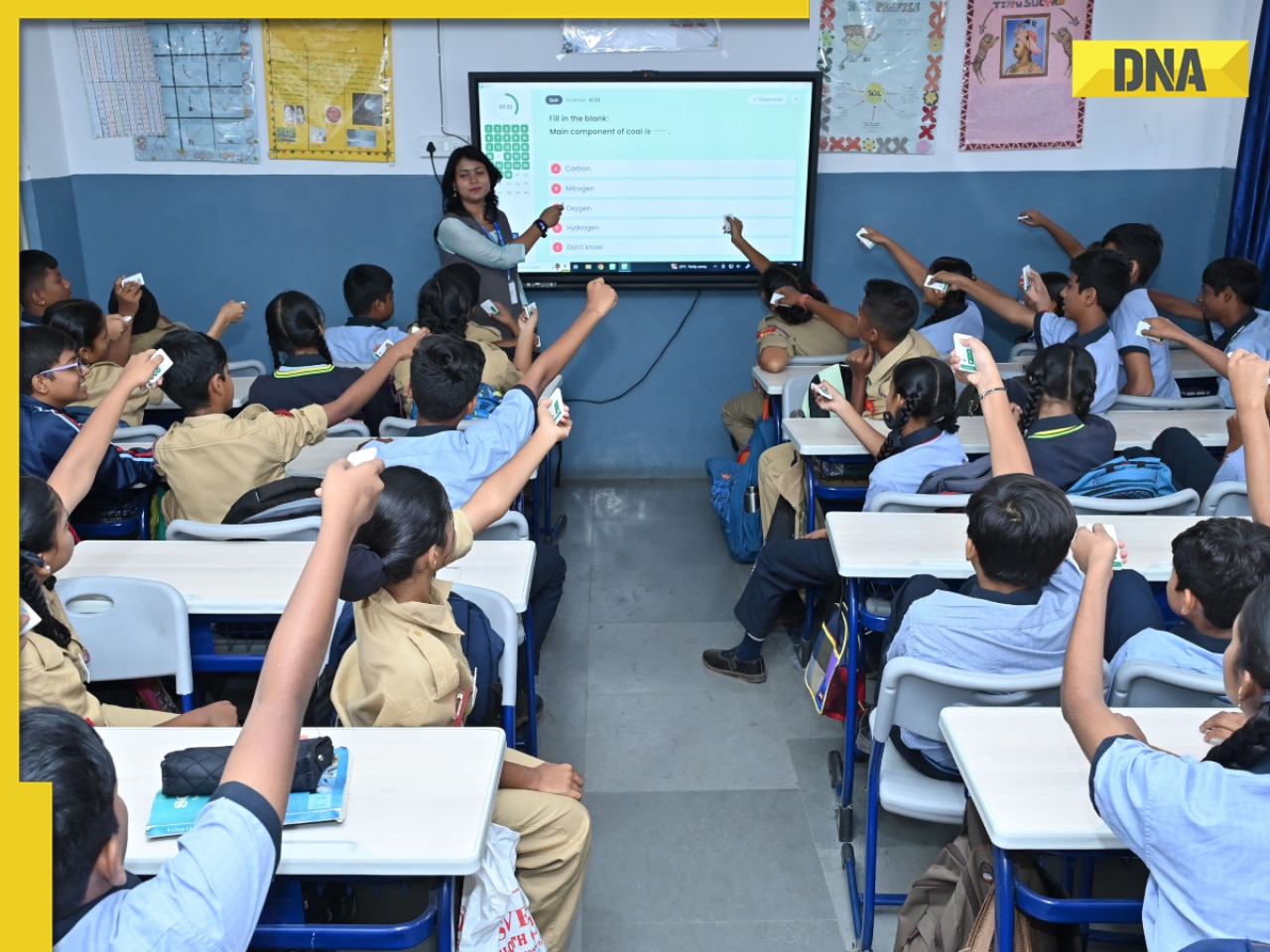 CBSE takes BIG step to ensure safety of students, directs all affiliated schools to...
CBSE takes BIG step to ensure safety of students, directs all affiliated schools to...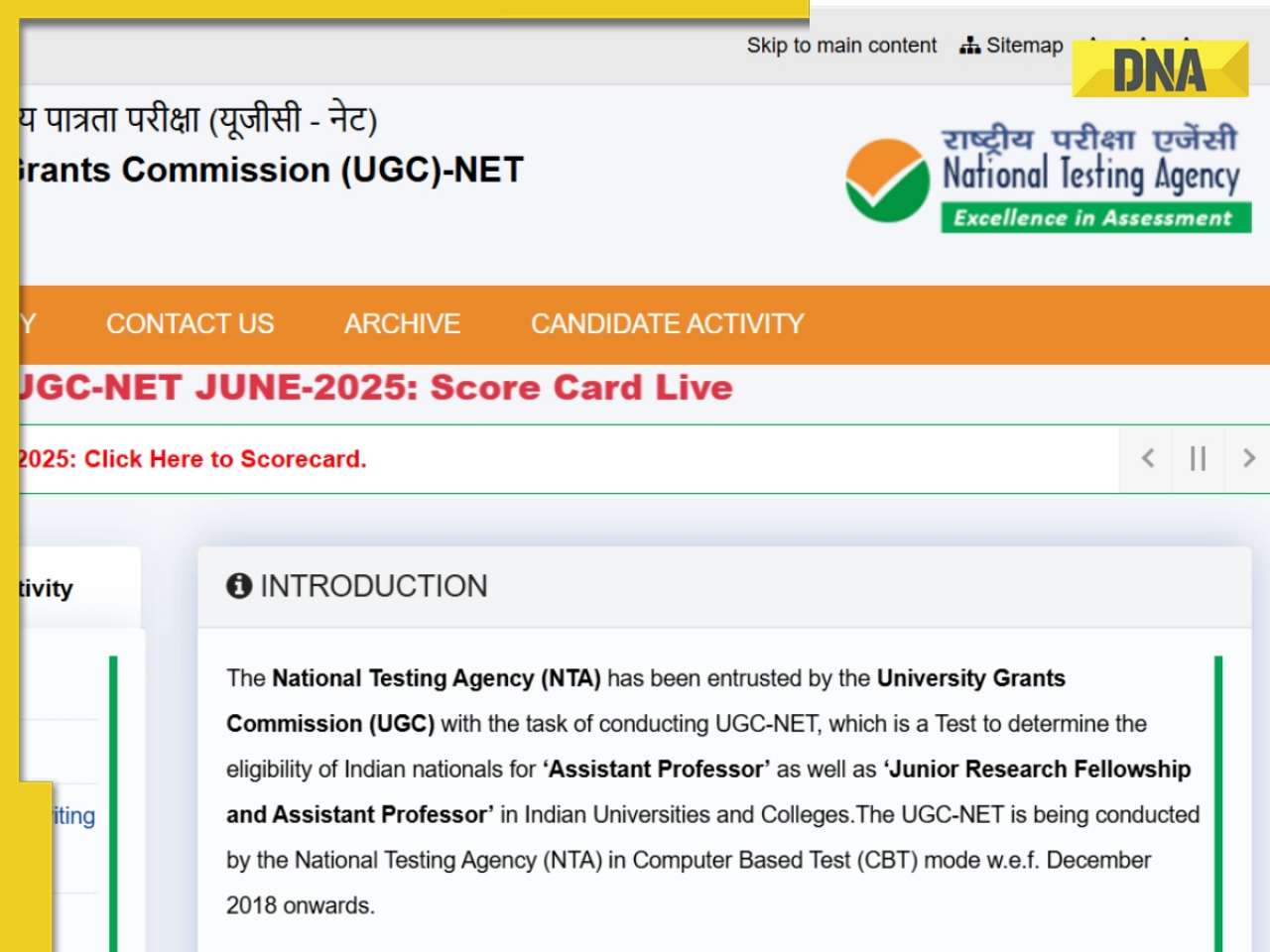 UGC NET June 2025 result released at ugcnet.nta.ac.in; get direct link, steps to download scorecard here
UGC NET June 2025 result released at ugcnet.nta.ac.in; get direct link, steps to download scorecard here NEET PG 2025 City Intimation Slip out today, here's how you can download it
NEET PG 2025 City Intimation Slip out today, here's how you can download it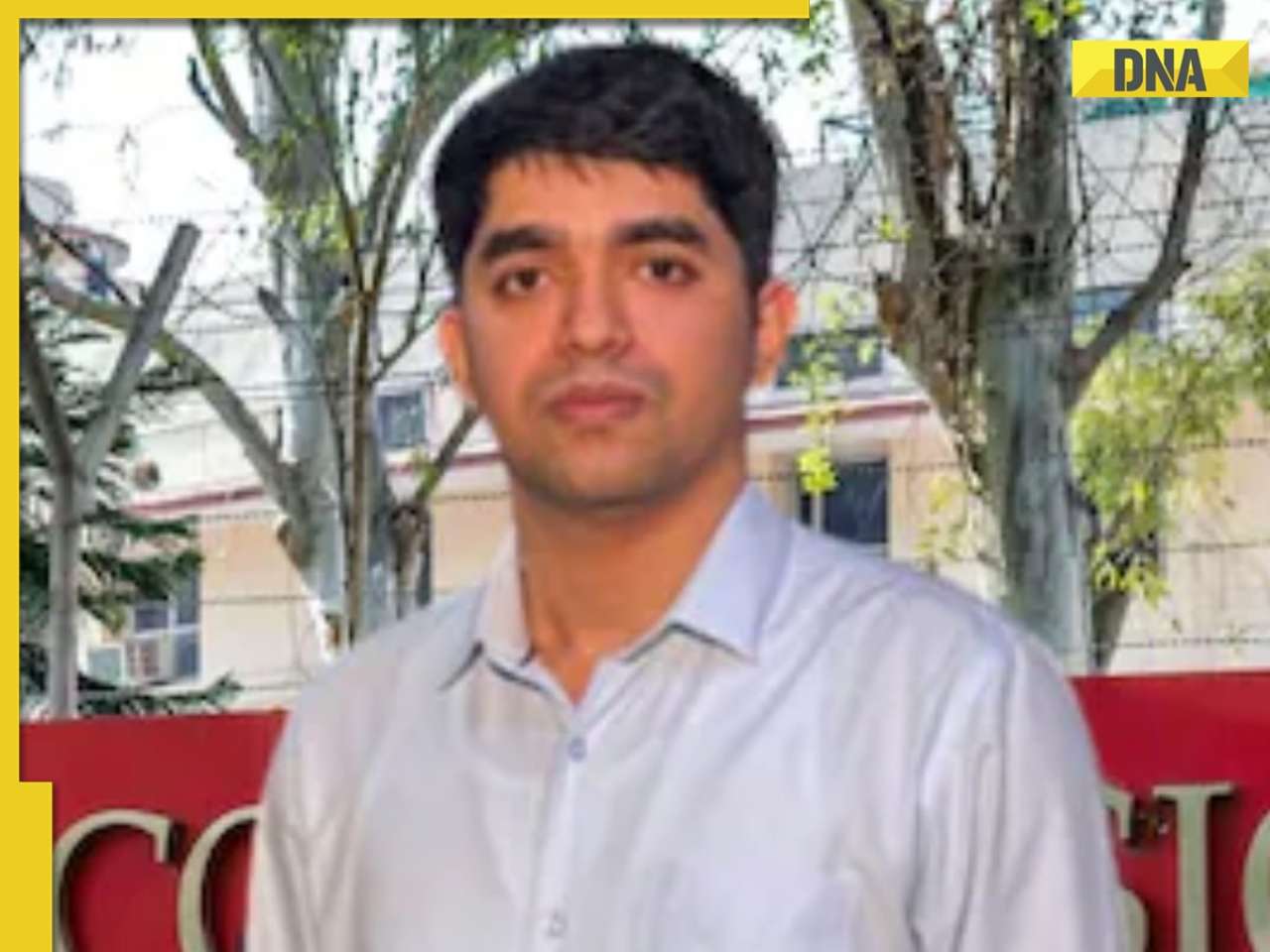 Meet IAS Shreyans Gomes, son of station master, who cracked UPSC in third attempt without any coaching, his AIR was...
Meet IAS Shreyans Gomes, son of station master, who cracked UPSC in third attempt without any coaching, his AIR was... This is world’s most expensive wood, cost of 1kg wood is more than gold, its name is..., is found in...
This is world’s most expensive wood, cost of 1kg wood is more than gold, its name is..., is found in... This luxury car is first choice of Indians, even left BMW, Jaguar, Audi behind in sales, it is...
This luxury car is first choice of Indians, even left BMW, Jaguar, Audi behind in sales, it is... Kia India unveils Carens Clavis: Check features, design changes, price and more; bookings open on...
Kia India unveils Carens Clavis: Check features, design changes, price and more; bookings open on... Tesla CEO Elon Musk launches most affordable Cybertruck, but it costs Rs 830000 more than older version, it is worth Rs...
Tesla CEO Elon Musk launches most affordable Cybertruck, but it costs Rs 830000 more than older version, it is worth Rs... Planning to buy a Maruti Suzuki car? Prices set to rise by 4% from...
Planning to buy a Maruti Suzuki car? Prices set to rise by 4% from...






)
)
)
)
)
)
)
)
)
)
)
)
)
)
)
)




